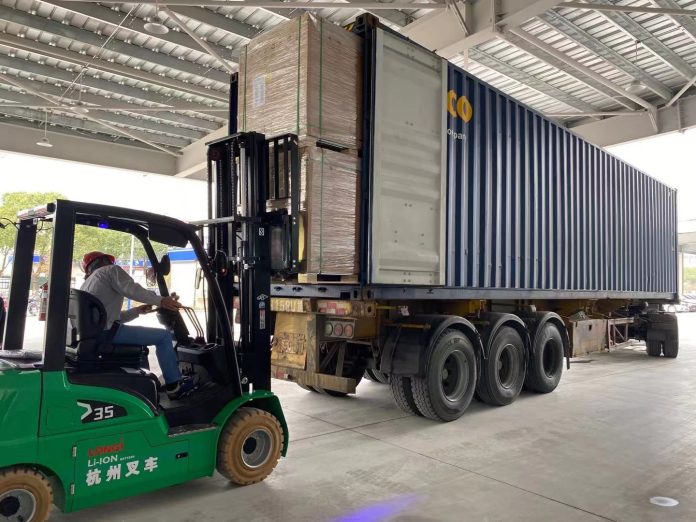Module prices are to remain elevated for the next 18 months at least, with any additional manufacturing capacity set to be quickly swallowed by soaring demand and capacity addition outside of China considered risky, Finlay Colville, head of market research at Solar Media, has said.
Speaking at the Solar Finance and Investment Europe (SFIE) event in London, organised by PV Tech publisher Solar Media, Colville said the demand for solar modules has increased beyond recognition in the past year and particularly since the COP26 climate conference in Glasgow in November.
“I’ve never seen such a big change in a 12-month period,” said Colville, adding that everywhere was now fighting to get access to a limited supply of modules.
He said demand for modules is about 25-30% higher than what the industry can supply and that roughly 30% of modules produced today never leave China, meaning the rest of the world is vying for the remaining 70%.
Polysilicon production remains an obvious bottleneck. For the past 18 months, as demand for modules and in turn polysilicon surged, producers were not able to sufficiently increase production capacity to meet that demand. This was compounded by natural events and energy constraints curtailing production in China.
The result, said Colville, was that China’s polysilicon producers were able to significantly up their prices, recording boosts to gross operating profits of up to 70%.
China’s solar manufacturing industry has limited vertical integration, said Colville, with cell, wafer and module producers siloed, meaning the polysilicon producers were able to accrue massive profits.
While the Chinese government could step in to address the imbalance and make polysilicon producers drop their prices, this could simply have the effect of distributing those profits along China’s PV value chain, with no impact on the final price of modules, noted Colville.
And reports of polysilicon capacity increases pushing down the prices of modules is not going to happen, he said, given the persistent high demand for modules.
While some polysilicon producers have added significantly more capacity since last year, this will get mopped up by massive global demand as countries ramp up solar deployment in line with the COP26 pledges.
All new build polysilicon facilities, on the other hand, take around 18 months to come online, said Colville, meaning a lengthy wait and no short-term impact on module prices.
For the same reason, it is unlikely to see new production facilities open outside of China. The 18-month delay, massive capex costs and energy intensiveness for new polysilicon factories is a major risk for developers, said Colville. From the time it takes to build the facility, prices could crash or China could price the new entrant out of the market, resulting in a day one loss, he explained.
In addition, the volume of these capacity additions are small relative to China’s production potential and will have little to no impact on the final price of modules for developers.
Meanwhile, the war in Ukraine may also cause an upward pressure on module prices, said Colville. Higher demand for modules to accelerate renewables deployment and the weaning off of Russian gas in Europe could push up prices. As too could the increased material costs that have been brought about by the conflict.
In short, Colville’s message to delegates at SFIE was not to expect modules prices to come down for at least 18 months, if not two years. In the short term they could even go up but there will not be any material change in prices for some time yet.
Module prices to remain elevated for 18 months at least as global demand skyrockets
Module prices are expected to stay elevated for at least the next 18 months, Colville said.
Source:PVTECH






